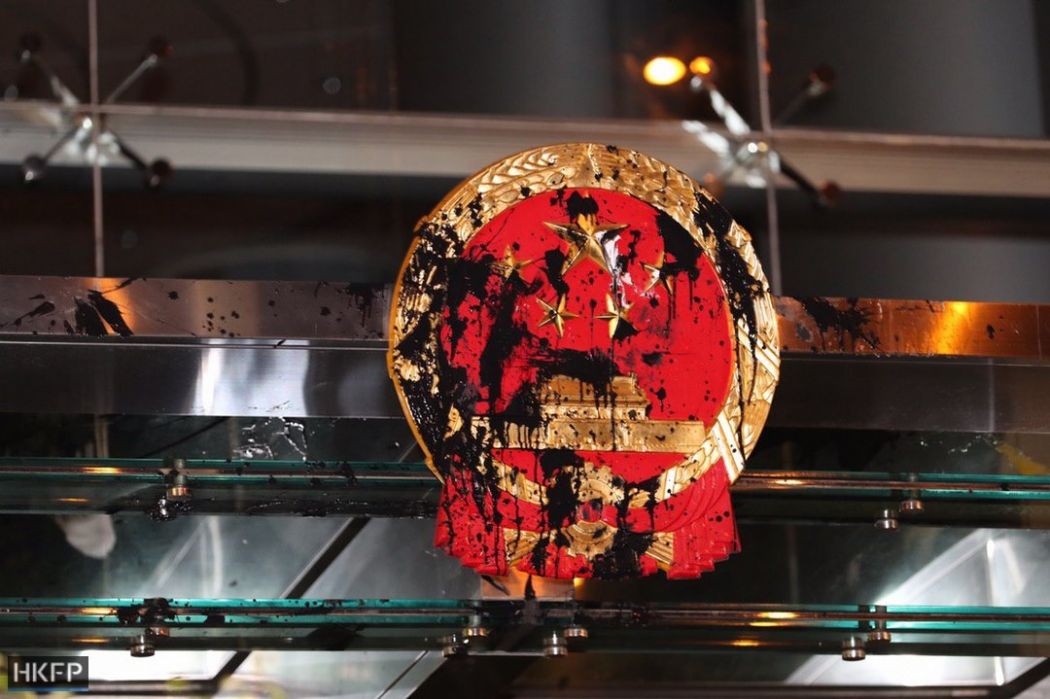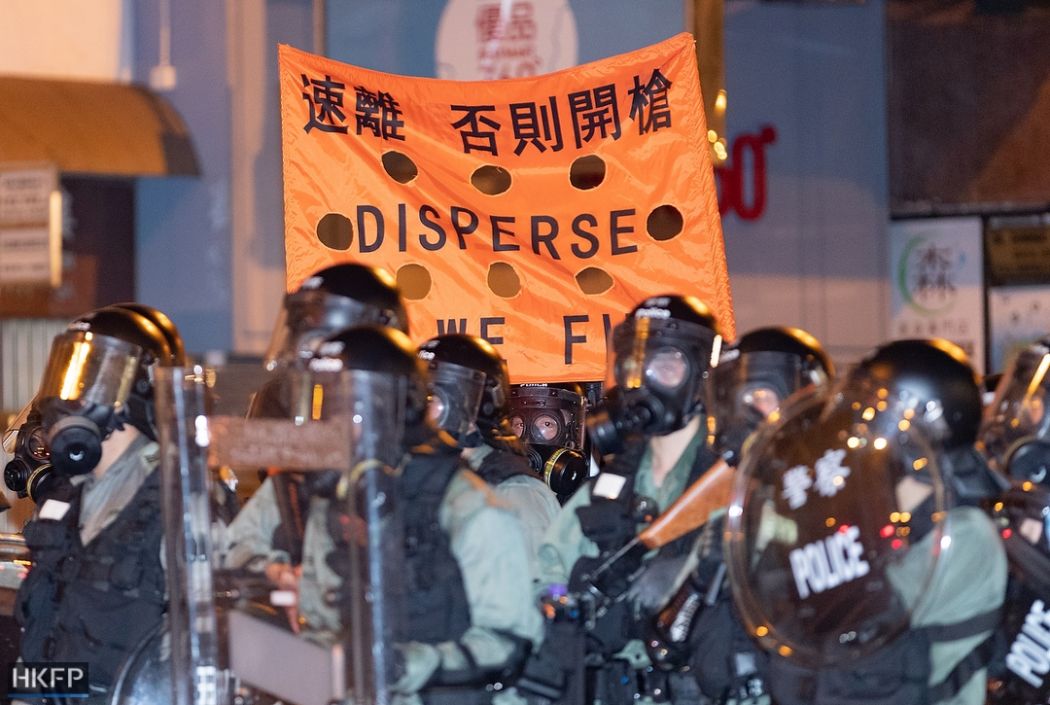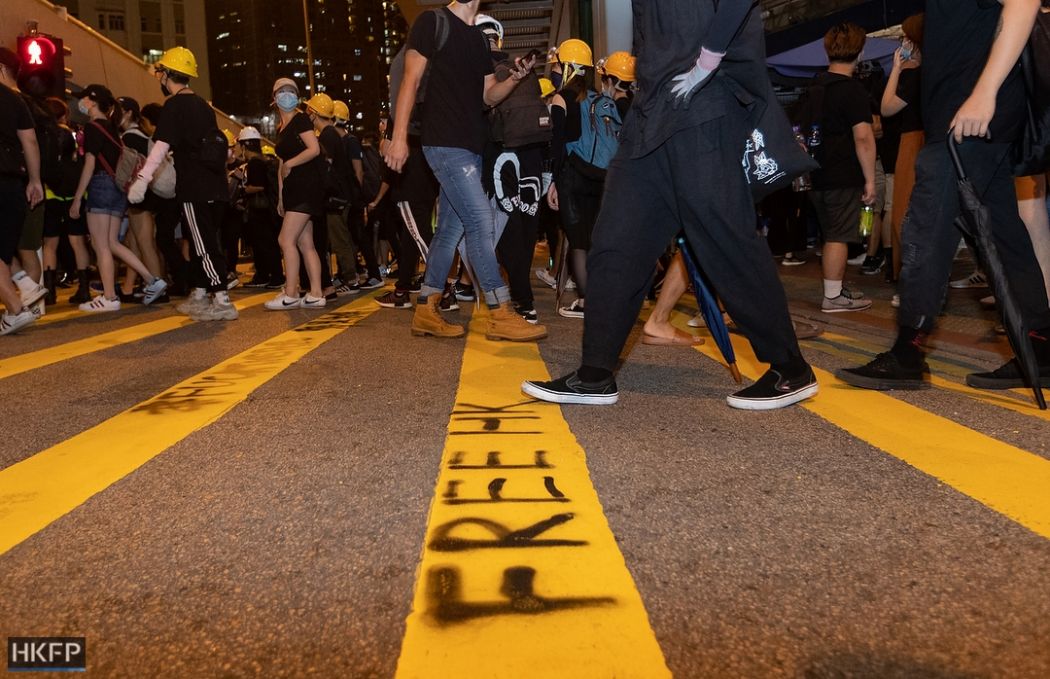Beijing has claimed that Hong Kong protests have “clear colour revolution characteristics,” adding that it will not rule out intervention if the city is in turmoil.
Colour revolution refers to movements in former Soviet countries in the 2000s that led to the overthrow of governments. Beijing believes such movements were organised or assisted by the United States.
The State Council’s Hong Kong and Macao Affairs Office and the China Liaison Office of Hong Kong conducted a joint seminar in Shenzhen on Wednesday, attended by around 500 top figures from Hong Kong’s pro-Beijing camp.

Zhang Xiaoming, head of the Hong Kong and Macao Affairs Office, said Hong Kong must “stop the riots and disturbances” after two months of protests. He said Beijing will support Chief Executive Carrie Lam and the police force.
In a speech published by the office after the seminar, Zhang cited former Chinese leader Deng Xiaoping and said: “If the situation in Hong Kong continues to worsen into unrest that the Hong Kong SAR government cannot control, the central government will not sit back and do nothing.”
The anti-extradition bill protest has evolved from a movement against the controversial bill to a wider one demanding the release of protesters, an independent investigation of police brutality and democracy.
Zhang criticised protesters’ recent slogan – “Liberate Hong Kong, revolution of our times” – as well as incidents where the national emblem was defaced and national flag discarded.
“Like many people in Hong Kong have said, the nature of the anti-[extradition] amendment incident has changed – it has clear colour revolution characteristics,” he said.

Liaison Office head Wang Zhimin said it was is now a “battle of life and death” for Hong Kong’s future and “battle to defend Hong Kong.”
He asked the attendees to support the chief executive and the government, and voice less criticism.
Now TV news channel cited unnamed sources as reporting that analysis by Beijing concluded that the city had 1,000 “extreme violent protesters” supported by foreign forces. Beijing decided that the Hong Kong police must arrest protesters en masse, and the Department of Justice must speed up prosecutions to deter them.
RTHK news channel also cited unnamed sources as reporting that Zhang said that it was not the right time to form an independent commission of inquiry to look into recent events. However, it could be considered after the protests end.

Elsie Leung, a former deputy chair of Beijing’s Basic Law committee who attended on Wednesday, said that – even if the Chinese army is deployed – it would not harm Hong Kong’s status.
“Some people believe that the ‘One Country, Two Systems’ principle will end if the People’s Liberation Army is used. But such beliefs are false. Even if the People’s Liberation Army is used, they will be used in accordance with the Basic Law and the ‘One Country, Two Systems’ principle, and there is no violation,” she said.
She said now is not the time to discuss universal suffrage.

The pro-democracy camp said Beijing was falsely labelling the protests.
Andrew Wan, vice-chair of the Democratic Party, said the protests were not a “colour revolution.”
“Instead, Beijing has the characteristics of a totalitarian government to use the law and cook up charges,” he said.
He said it was difficult to analyse the chances of Beijing using the Chinese army, but people should not be too pessimistic.
He said that, if the army is used, the ‘One Country, Two Systems’ principle will be seen as finished, and Hong Kong’s and China’s economy will face massive challenges.
“I hope the central government remains rational,” he said.
